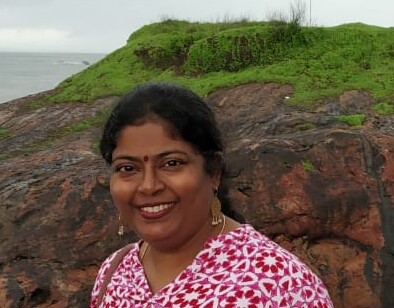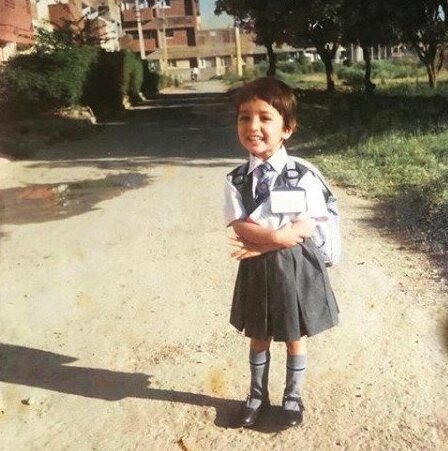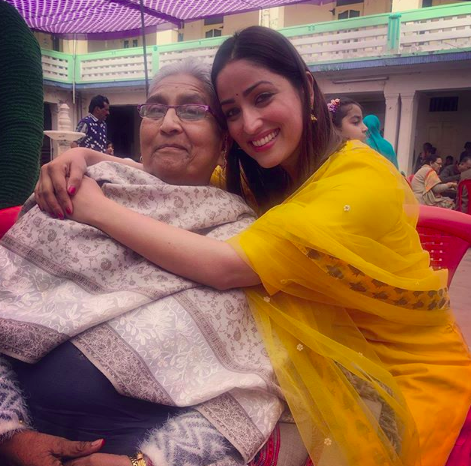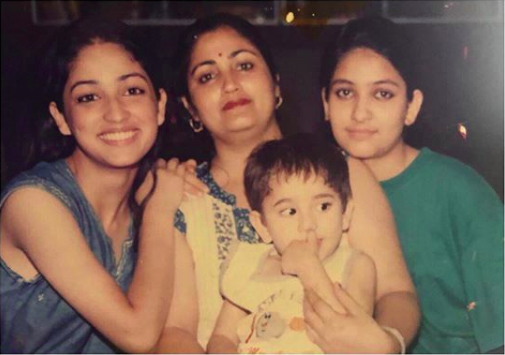The Slow Cafe: Yami Gautam on her first flight, plucking ‘ambiyan’ and the experience called Mumbai
In a conversation with Neelesh Misra, the actress who once aspired to be a civil servant opens up about her life experiences, growing up in small town in India and what fame means to her.

A little more than a decade ago, a young girl took her first flight. She was clueless about the seatbelt, and thought that Mumbai, the big city she was coming to was in party mode, because it was all lit up. Upon landing, she realised they were streetlights. A family friend told her they were going to Goregaon. “Oh, so I’m going to some village. Why did they tell me they lived in Mumbai?” she wondered.
It’s possible no other platform or interviewer provided actress Yami Gautam that comfort zone where she could reveal thoughts she holds close to her heart, like the languorous The Slow Cafe with Neelesh Misra did. Or, say things that might otherwise be considered silly by the world.
Gautam has that kind of image on and off screen too. She comes across as assured, but also contained. Someone who does not need the outside world to validate her choices or tell her she’s good. Which is why she is as proud of the experimental TV show she chose to do a decade ago, which ran for a mere four months, as she is of her bigger, commercial successes.
At heart, Gautam is still the Chandigarh girl who delighted in a trip to the Sector 17 market. The IAS aspirant and law student who loved the process of learning; it spilled over to films when she had to memorise her lines in languages alien to her — Kannada and Malayalam. The girl who chose to not lipsync ‘abcd’ as is usually the norm, and learnt the dialogue instead.
For someone who follows a routine every day of her life, figuring out cooking, phone conversations with family, tea time and movie-watching, the COVID-19-induced lockdown was like any other phase. “It’s probably because of the person I am. I think patience is my main virtue,” she laughed.
That patience comes to the rescue even when she’s called by the many variations of her name — Yammy, Yaamini, Yani, Yamin, far removed from root of her name ‘antaryami’, chosen by her grandfather, in whose house in Bilaspur, Himachal Pradesh, she was born. “As a child, every time I was called on stage in school for a prize or something, I would be tense wondering what version of my name would get called out, because I’d get teased by it for a while after that.”

Gautam’s girl next door avatar spilled over into the interview too, when she spoke about her grandmother Swarnlata, the one who managed everything with a smile. The one who probably bought only milk from outside. “Everything else, be it mathri or namkeen, badam wala doodh, ghee, she made at home. And, she was very pleasant. I think I have her personality. This time around, I called her to find out how to make kajal at home,” she said, pointing to the one she was wearing.
Food talk got Gautam to speak about how the lockdown and being away from family saw her go back to her Pahadi roots and make Chambe ke rajma. “All these days, I ate it, this time I cooked it. I called my mother and learnt how to make it, and once I tasted it, I was reminded of my nani… I called her up and told her I could not wait to cook this in front of her,” she added.

In Mumbai, Gautam is far away from the things she cherishes most about Chandigarh — her family, her friends, the chill in the air, the warmth of the city, the unique French architecture and the middle-class upbringing she is so happy about. “Living in a smaller city teaches you to value the small things,” she said, and added how joy was in rickshaw rides and balloons and ice cream.
Misra spoke about how when we leave smaller cities and move to the metros, we sometimes return to a place that’s changed beyond recognition. He called it the yaadon ke dweep (an island of memories).
Gautam said she goes back to a place where everyone knows everyone, where everyone took part in the other’s sadness and joy, where, as a child, she and her friends would go to the mango grove near her colony and pick ambiyan (baby or raw mangoes) and take them home to make chutney.

Misra spoke of the issue of the boy-girl dynamic in smaller cities, and Gautam said that while she never looked at the ground, she never engaged with those who chased rickshaws in bikes, either. “Once, I reacted. Someone on a bike tried to touch my hand when I was in a rickshaw, and I slapped him so hard. We had to commute for tuition and there were these boys, who closer to Valentine’s Day, felt it was made just for them. In 2020, not much has changed! I always wonder if the parents of these boys know how their sons behave outside. Upbringing is so important.”
Years before she even thought of acting as a career, only a close circle of friends knew she could mime well. “We would watch this show called Jeena Isi Ka Naam Hai and wonder how it would be to be there on stage,” she recalled. One day, a family friend insisted her mother hand over some photos of hers, because he felt she had a chance in Mumbai. “I was not at all interested, but finally recorded an audition from home for Sphere Origins (owned by Sunjoy Waddhwa). They wanted me to come to Bombay and I said I could, provided they paid for the ticket. They did. That was my first flight, and while I did not get chosen for that show, I was given the chance to pick from two other shows. I chose the one where I played a warrior princess, the one that did not run successfully for many years,” she laughed. Before she left, her father took her on a drive and asked her to consider what she wanted. “I liked what I felt during that audition, and decided I would give it a shot with all my heart. My course director in college was a little taken aback when I went for my TC, because I was a good student.”
Gautam had what Misra called “a soft landing” in the city, staying with family friends before moving out. Gautam is grateful for the opportunities the city gave her. “Everything was so big, in contrast to what I knew. I wondered how I would live here, commute here. But, between end-2010 and early 2011 was the best phase in my life, great phase. While acting in television, I would use the lunch breaks to audition for ads, or go learn kathak. It was full of learning, and I wanted to absorb as much as I could, because I was not trained, and was learning on the job.”
She also faced reality checks. “In films, a house in Mumbai is always sea-facing, you get to see the beach. I was like, no no that’s not what reality looks like… It is commendable how people live in constrained spaces; I am in awe of their space management,” she said.
For someone who grew up in a friendly neighborhood, it came as a bit of a shock when the family friend aunty told her that unless there was an emergency, one need not go ring the neighbour’s bell. “I was like, achcha…” she said.

Mumbai was also where she discovered that a building could be called Kuber Complex, named after the god of wealth, but look very ordinary from the outside and plush inside. It was where she discovered the beauty of the Ganapati celebrations and Lalbaghcha Raja, calling up friends to tell them it was like their Diwali, multiplied many times over. “I had so many questions, and the city kept giving me my answers,” she said.
Mumbai was where Gautam learnt to walk one way to save money, where she saw doors closing, but also opening. “It was a zone of uncertainty, and I was exhausted by television, but I wanted to give myself a chance to do something and then go back.”
Gautam spoke about the first time she was introduced to Misra’s voice. And then, two people — a storyteller who hates horror and an actress who loves the genre spoke about how she was spooked by his rendition and had to turn off the radio. “I have a confession,” said Misra. “I am terrified of horror and would record them during the day!”
Misra then spoke to her about that fickle this called fame. “When did you first feel famous?” he asked. “When I watched Vicky Donor with my friends Sukhmani, Gargi and Simran and family in Chandigarh. You can never forget that feeling of watching your film with the audience.”
But does not popularity come with an expiry date? “When I was new, and watched the interviews of other actors, they would tell people to not take this very seriously. I would wonder why they said that. Now I know. So many people try, some get in. I am grateful, but the focus should always be on the work, not us. If I keep focussing on what I don’t have, I will never enjoy what I do have. Films, I’ve realised, are an important part of my life, not my entire life.”

